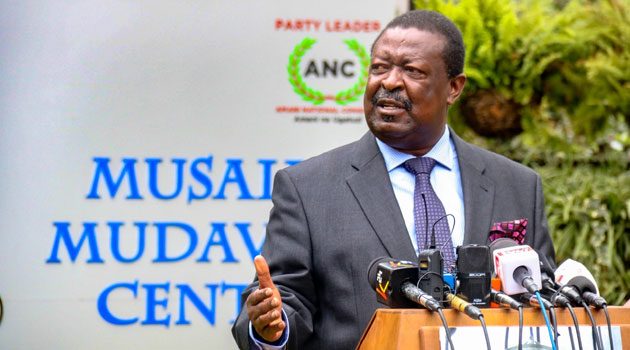Prime Cabinet Secretary Musalia Mudavadi has raised alarm over the growing use of artificial intelligence (AI) by terrorist groups to advance their operations in Kenya and the wider Horn of Africa region.
Speaking in New York during a meeting with Natalia Gherman, Executive Director of the United Nations Counter-Terrorism Executive Directorate (CTED), Mudavadi cautioned that AI is adding a new dimension to terrorism. He noted that extremist groups are now experimenting with AI tools to generate propaganda, manipulate information through deepfakes, automate recruitment messaging, and support cyber-enabled crimes such as phishing and financial fraud.
Kenya continues to face persistent threats from Al-Shabaab, which exploits instability in Somalia and porous borders to launch deadly attacks. These include improvised explosive devices (IEDs), targeted killings, and ambushes on civilians and security forces. Mudavadi warned that extremist groups are increasingly recruiting and radicalizing youth online, a challenge worsened by the movement of foreign terrorist fighters across the Horn of Africa.
At the national level, Mudavadi outlined Kenya’s multi-dimensional counter-terrorism strategy. This includes the Prevention of Terrorism Act, the work of specialized units such as the Anti-Terrorism Police Unit, and intelligence-led border surveillance operations. Additionally, the National Strategy to Counter Violent Extremism (NSCVE) is empowering counties to lead prevention, deradicalization, and rehabilitation initiatives.
Regionally, Kenya is working through security mechanisms under IGAD, the African Union, and the Djibouti Code of Conduct, while also strengthening its counter-IED capacity, cybersecurity, and intelligence-sharing with global partners.
Mudavadi commended CTED for its role in supporting member states, urging greater focus on technology transfer, sustainable financing, and ensuring African perspectives shape global counter-terrorism strategies.
Ms. Gherman announced that CTED is ready to conduct a new assessment in Kenya this year, the first since 2016. Mudavadi welcomed the proposal, stressing the need for continuous legal reviews and early education on digital awareness.
He reaffirmed Kenya’s commitment to working with CTED and international partners to build resilience against terrorism and violent extremism.

